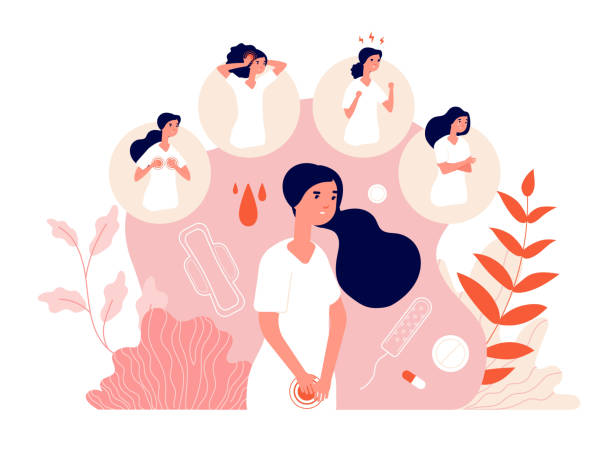Best Gynaecologist in South Delhi: Dr. Gayatri Kar Soni
Gynaecological Problems in Teenage Girls
In today’s world, teenage girls are increasingly facing various gynaecological issues that can affect both their physical and mental well-being. From irregular periods to infections, these problems require attention and care from experienced professionals. Let’s delve deeper into understanding what gynaecological problems are, their causes, and ways to improve gynaecological health.
What is a Gynaecological Problem?
A gynaecological problem refers to any issue that affects the female reproductive system, including the uterus, ovaries, fallopian tubes, and vagina. These problems can range from menstrual irregularities to more severe conditions such as polycystic ovary syndrome (PCOS), infections, and fertility issues. Gynaecological issues can occur at any age but are becoming more prevalent among teenage girls due to lifestyle, hormonal changes, and environmental factors.
Most Common Gynaecological Problems
Here are some of the most common gynaecological problems faced by teenage girls and women:
- Irregular Periods: Fluctuating hormones during adolescence often cause irregular menstrual cycles.
- Polycystic Ovary Syndrome (PCOS): This condition is characterized by irregular periods, excessive hair growth, and weight gain.
- Urinary Tract Infections (UTIs): Infections in the urinary tract are common and can lead to discomfort, burning sensations, and frequent urination.
- Vaginal Infections (Yeast/Bacterial Vaginosis): Infections caused by an imbalance in the natural bacteria or fungus in the vagina can result in itching, irritation, and discharge.
- Endometriosis: A condition where tissue similar to the lining of the uterus grows outside the uterus, leading to pain and menstrual irregularities.
- Painful Menstruation (Dysmenorrhea): Severe menstrual cramps that can interfere with daily activities.
Main Factors of Gynaecological Problems
Several factors contribute to gynaecological problems, particularly in teenage girls:
- Hormonal Imbalance: Puberty often brings about fluctuations in hormones, leading to conditions like PCOS and irregular periods.
- Diet and Lifestyle: Poor diet, lack of exercise, and stress can negatively impact menstrual health and overall gynaecological well-being.
- Sexual Activity: Unprotected sex can lead to sexually transmitted infections (STIs) or other complications, impacting reproductive health.
- Obesity: Being overweight can increase the risk of PCOS, irregular periods, and other gynaecological issues.
- Poor Hygiene: Not practicing proper vaginal hygiene can lead to infections like UTIs and bacterial vaginosis.
Tips and Tricks to Improve Gynaecological Health
Maintaining good gynaecological health is crucial for overall well-being. Here are some tips to help improve reproductive health:
- Regular Check-ups: It’s essential to see a gynaecologist regularly, even if you feel healthy. Regular check-ups can help detect potential problems early.
- Maintain Proper Hygiene: Always practice good hygiene, especially during menstruation, to prevent infections. Change sanitary products regularly.
- Healthy Diet: A balanced diet rich in fruits, vegetables, whole grains, and lean proteins can help regulate hormones and promote reproductive health.
- Stay Physically Active: Regular exercise helps maintain a healthy weight, which can prevent many gynaecological issues, including PCOS.
- Stress Management: Reducing stress through activities like yoga, meditation, and mindfulness can improve menstrual regularity and overall well-being.
- Safe Sexual Practices: Always use protection during sexual activity to reduce the risk of infections and STIs.
FAQs About Gynaecological Problems
Q: What age should I start visiting a gynaecologist?
A: It is recommended to start visiting a gynaecologist between ages 13 to 15 or when menstrual cycles begin, especially if there are any concerns.
Q: What are the signs of a gynaecological problem?
A: Common signs include irregular periods, severe cramps, unusual discharge, itching, and frequent urination. If you experience any of these symptoms, consult a gynaecologist.
Q: What is the treatment for PCOS?
A: Treatment usually involves lifestyle changes, hormonal medications, and in some cases, fertility treatments, depending on the individual’s symptoms and health goals.
Q: How can I prevent gynaecological infections?
A: Maintain proper hygiene, wear breathable clothing, and avoid douching or using harsh soaps on the genital area.
Conclusion: Dr. Gayatri Kar Soni – Best Gynaecologist in South Delhi
When it comes to women’s health, especially in obstetrics, gynaecology, and infertility, Dr. Gayatri Kar Soni stands as one of the best gynaecologists in South Delhi. With extensive national and international training, Dr. Gayatri brings unparalleled expertise and compassionate care to her patients. Her holistic approach ensures that each patient receives personalized treatment based on sound diagnosis, tailored to her unique needs.
At every stage of a woman’s life, whether it’s navigating routine check-ups, addressing complex gynaecological issues, or dealing with infertility concerns, Dr. Gayatri and her dedicated team are there to support you. With a strong focus on patient well-being and a commitment to providing the best possible care, Dr. Gayatri Kar Soni is truly a leader in her field.
For all your gynaecological needs, book a consultation with Dr. Gayatri Kar Soni, and experience the highest standard of care in South Delhi.

